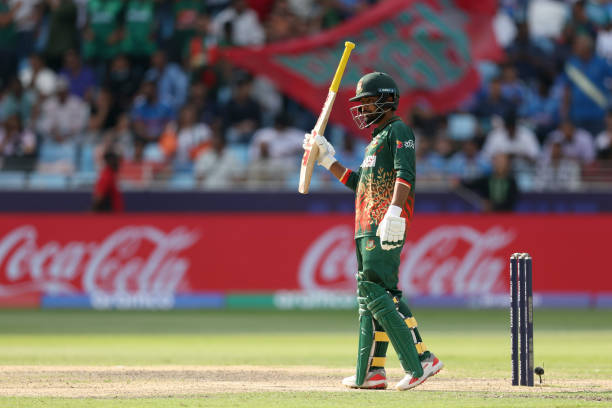
Introduction
Success in sports is not just about physical ability; the mental aspect plays a crucial role in determining an athlete’s performance. Indian athletes have increasingly embraced sports psychology to enhance their mental resilience, focus, and ability to handle pressure. In this article, we will explore the psychological techniques that Indian athletes use to achieve excellence, the role of sports psychologists, and how mental training contributes to winning performances on the global stage.
The Importance of Mental Training in Sports
Sports psychology is the study of how psychological factors influence athletic performance. While strength, endurance, and skill are vital, the ability to stay focused, manage stress, and maintain self-belief often makes the difference between winning and losing.
Key Benefits of Mental Training:
- Enhanced concentration and focus
- Better stress and anxiety management
- Improved self-confidence and motivation
- Increased mental resilience in high-pressure situations
- Stronger ability to handle setbacks and failures
How Indian Athletes Train Their Minds for Success
1. Visualization and Mental Imagery
Indian athletes incorporate visualization techniques to enhance their confidence and prepare for competitions. Visualization involves mentally rehearsing movements, game scenarios, and winning moments.

In the Kabaddi World Cup Final 2016, India will clash with Iran on October 22, 2016. / AFP / Sam PANTHAKY (Photo credit should read SAM PANTHAKY/AFP via Getty Images)
Examples:
- Neeraj Chopra, India’s Olympic gold medalist in javelin, has spoken about how he visualizes each throw before stepping onto the field.
- PV Sindhu, a world-class badminton player, practices mental imagery to anticipate her opponent’s moves and refine her game strategy.
2. Meditation and Mindfulness
India has a rich history of meditation and mindfulness, which many athletes use to improve concentration and mental clarity.
Techniques Used:
- Breathing exercises to stay calm under pressure.
- Mindfulness meditation to enhance awareness and prevent distractions.
- Pre-match meditation rituals to build confidence and focus.
Athletes like Virat Kohli and Sachin Tendulkar have spoken about how mindfulness techniques help them stay composed under intense competition.
3. Building Mental Resilience
Resilience is the ability to recover quickly from setbacks. Indian athletes train their minds to bounce back from losses, injuries, and failures.
Strategies:
- Positive self-talk to maintain motivation.
- Reframing failures as learning opportunities.
- Developing a growth mindset, believing that skills can be improved with effort.
Mary Kom, India’s boxing legend, attributes her success to her ability to learn from setbacks and remain mentally strong despite challenges.
4. Goal Setting and Affirmations
Setting realistic and achievable goals is a fundamental principle in sports psychology. Indian athletes use structured goal-setting techniques to maintain motivation and track progress.
SUGGESTED FOR YOU
Techniques:
- Short-term and long-term goals to measure progress.
- Affirmations and positive reinforcement to build self-confidence.
- Journaling achievements to stay motivated.
Indian cricketers and Olympians use goal visualization boards to remind themselves of their objectives and maintain focus.
5. Managing Pressure and Expectations
Competing at the highest level means dealing with immense pressure from fans, media, and personal expectations. Indian athletes use mental conditioning to handle stress and perform optimally.
Coping Mechanisms:
- Pre-match rituals to establish familiarity and reduce anxiety.
- Controlled breathing techniques to stay relaxed before and during a match.
- Focusing on the process rather than the outcome.
MS Dhoni, known as ‘Captain Cool,’ is famous for his composed demeanor under pressure, which he credits to mental training and experience.
The Role of Sports Psychologists in Indian Sports
Sports psychologists are becoming increasingly important in Indian sports, working closely with athletes to enhance mental toughness.
Responsibilities of a Sports Psychologist:
- Identifying mental barriers affecting performance.
- Developing personalized mental training programs.
- Helping athletes overcome fear, anxiety, and self-doubt.
- Training in concentration techniques to improve in-game focus.
With increased support from sports organizations, Indian teams across disciplines, including cricket, wrestling, and badminton, now integrate sports psychologists into their coaching staff.
Case Studies of Indian Athletes Using Sports Psychology
Neeraj Chopra (Javelin Throw)
Neeraj Chopra’s gold medal at the Tokyo 2020 Olympics was not just a result of his physical prowess but also his mental preparation. He worked extensively with sports psychologists to visualize success, stay confident, and maintain focus in a high-pressure environment.

CHECK OUT TOP 3 FREE BETTING PREDICTION SITES
Accuratepredict.com Soccerpredictions.net Betloy.com
PV Sindhu (Badminton)
As one of India’s most successful badminton players, PV Sindhu uses visualization, mindfulness, and structured goal-setting to remain at the top of her game. Her ability to stay mentally strong has helped her win numerous international titles.

Virat Kohli (Cricket)

Kohli, one of the world’s best cricketers, has openly spoken about how mental conditioning has played a crucial role in his career. From practicing mindfulness to engaging in positive self-talk, he ensures that he is mentally prepared for any challenge.
Conclusion
Mental training is a game-changer in modern sports, and Indian athletes are increasingly leveraging psychological techniques to gain a competitive edge. By incorporating visualization, mindfulness, goal setting, and resilience-building, they are achieving remarkable success on the global stage. As the role of sports psychology continues to grow, the future of Indian sports looks even brighter.
SEO Keywords: Sports psychology India, Indian athletes mental training, visualization in sports, mindfulness for athletes, sports psychologists in India, mental resilience in sports, how Indian athletes train, sports mental preparation, psychological strategies for athletes, mental toughness training.









